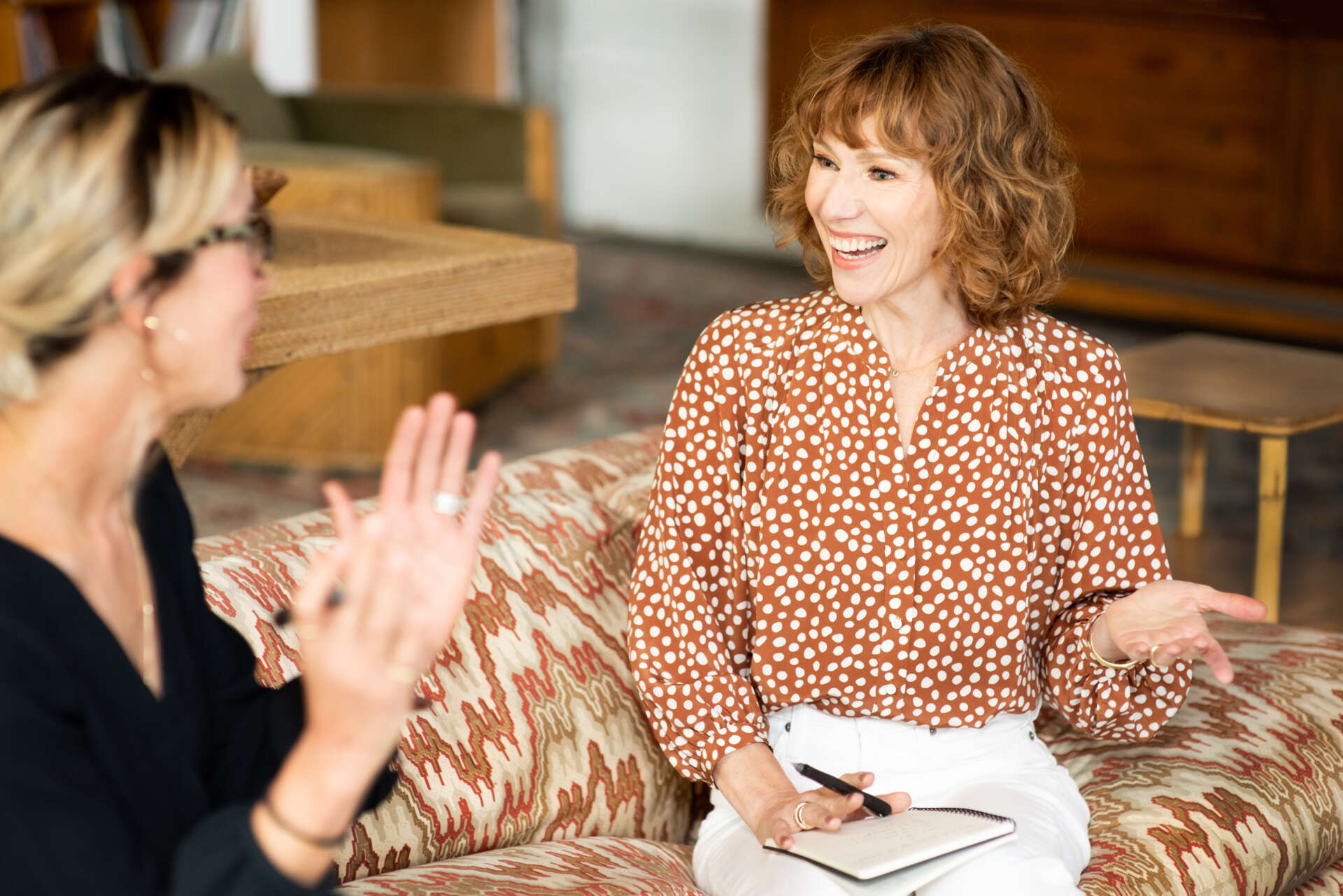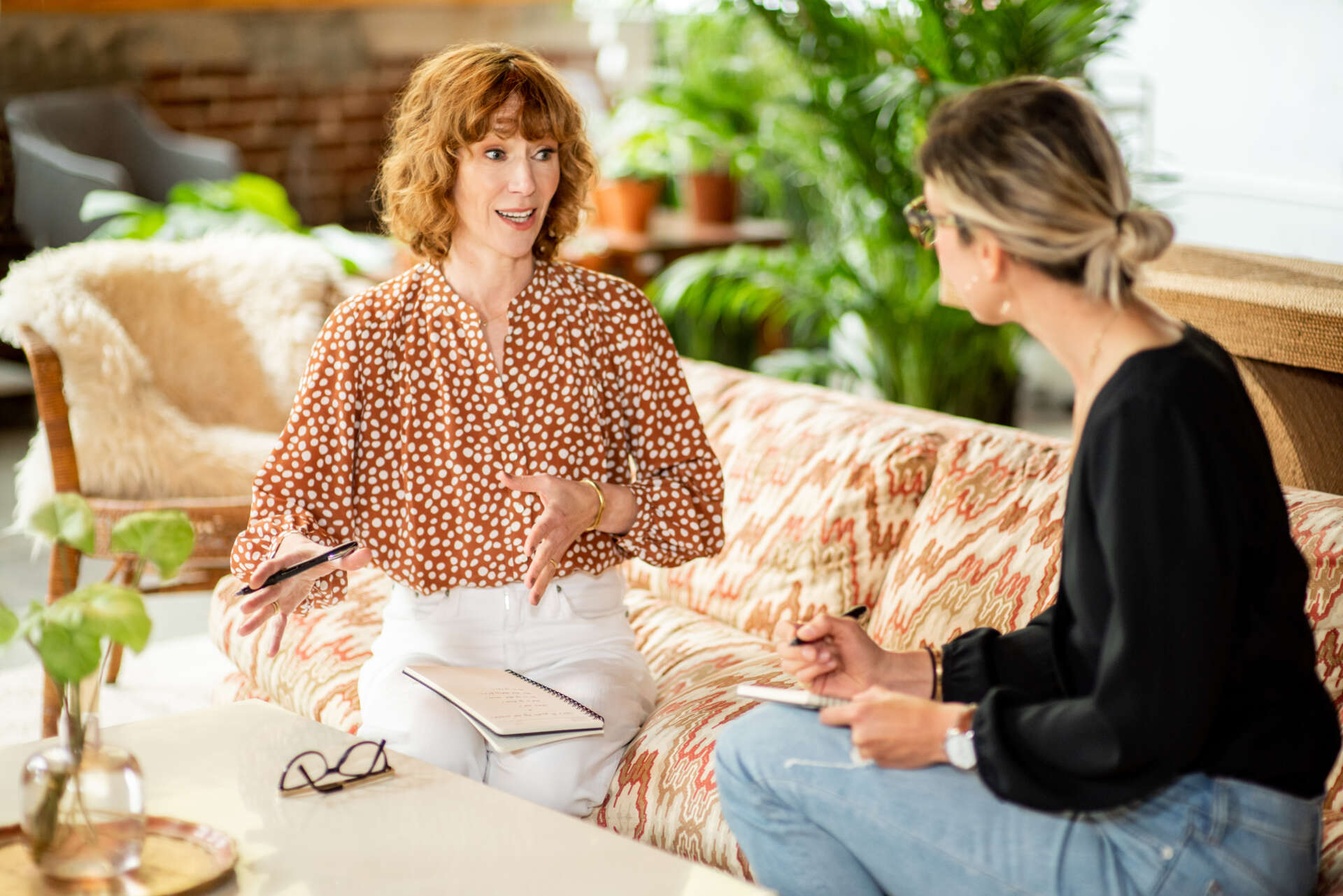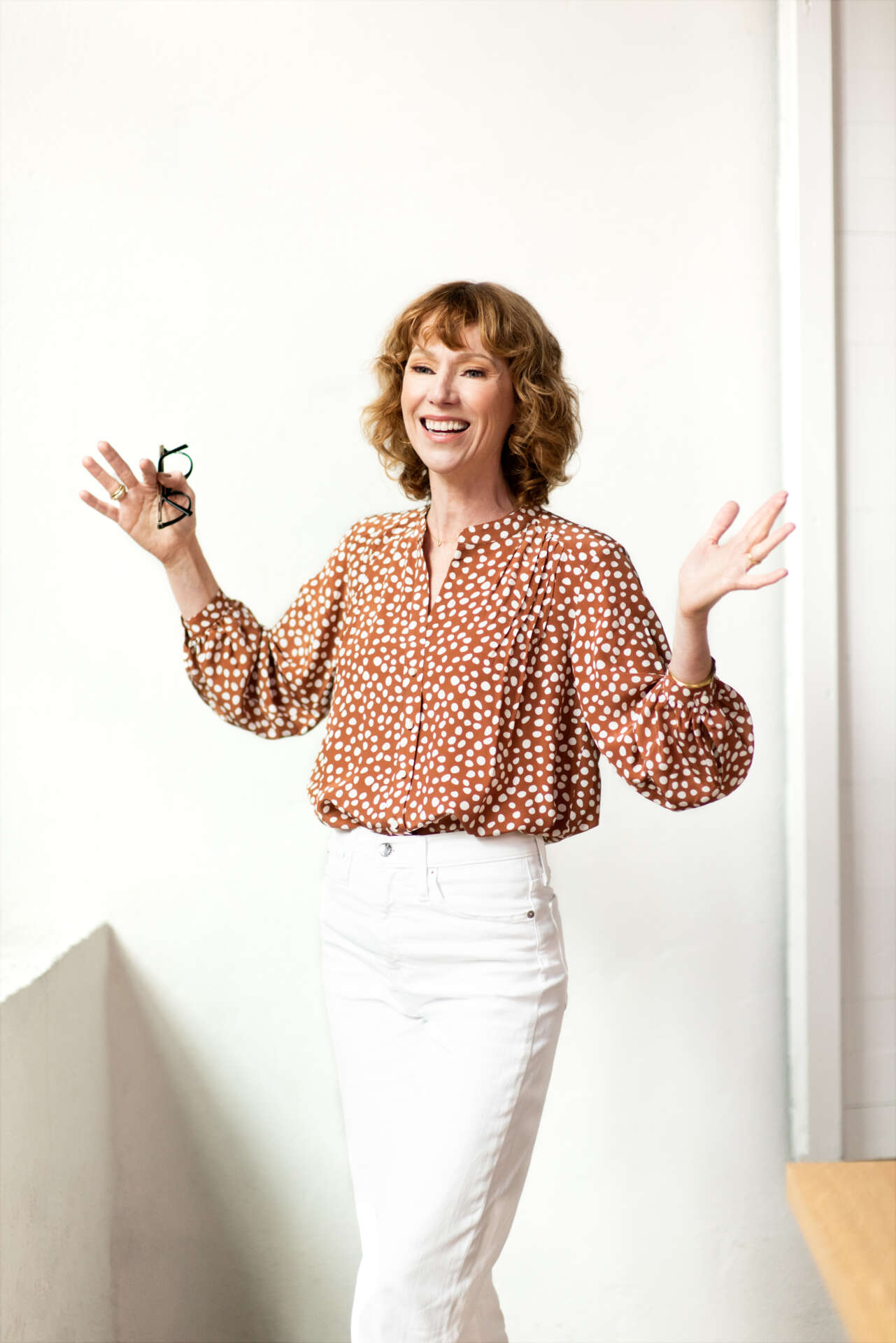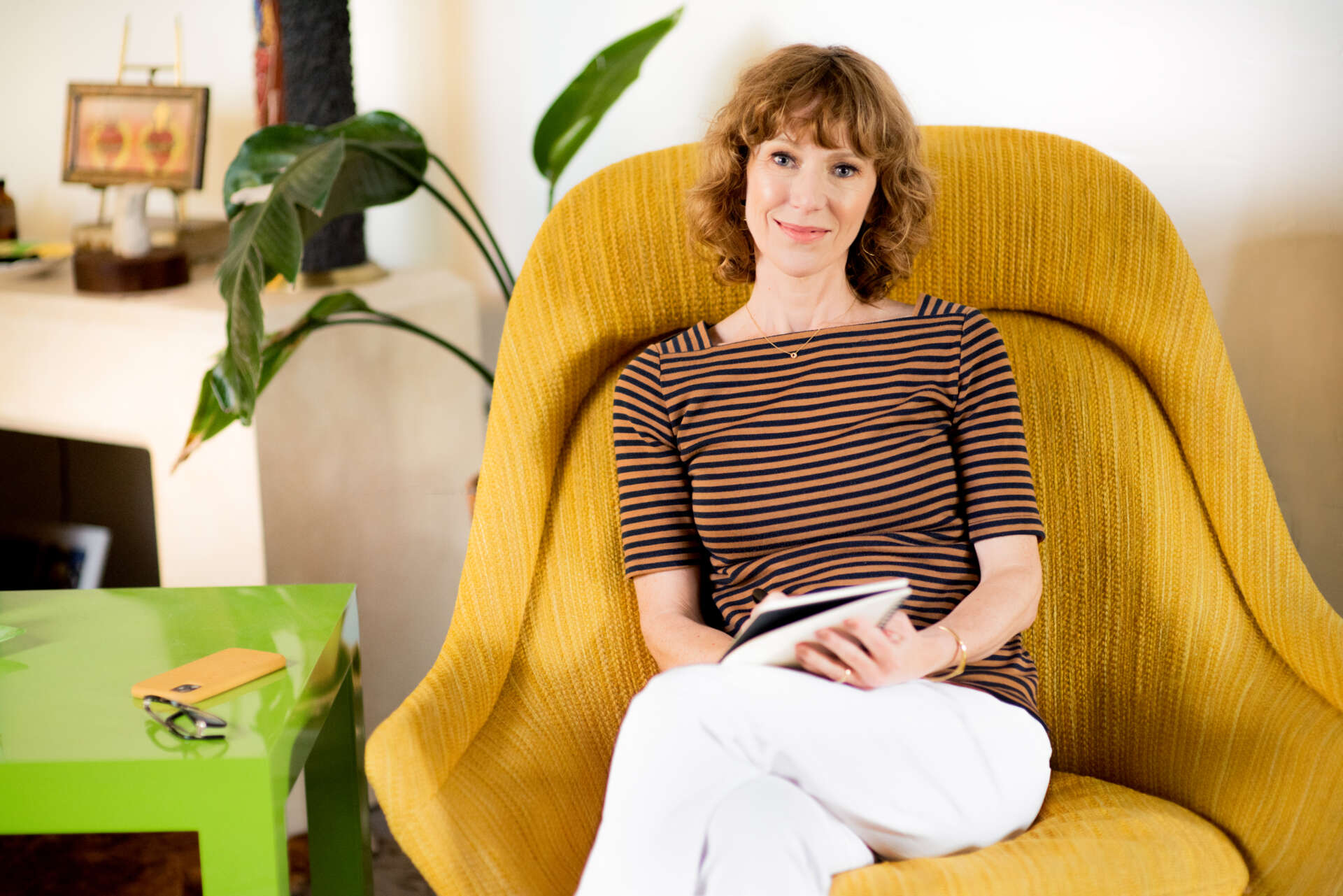We recently connected with Justine Clay and have shared our conversation below.
Justine, thanks for joining us, excited to have you contributing your stories and insights. What’s the backstory behind how you came up with the idea for your business?
The story of how I came up with the idea for my coaching business falls into two main chapters (1) the initial idea to specialize in coaching creative entrepreneurs and freelancers (2) the idea to develop a sub-specialty in coaching creatives who also had ADHD.
The idea to coach creative entrepreneurs and freelancers was born out of the 2008 recession. At the time, I had a creative management business and was an agent for some of the best independent creatives in NYC. I helped brands and agencies connect with top-level art directors, copywriters, and fashion illustrators for their special projects and campaigns and managed the projects from beginning to end. Over a 15-year career in this field, I developed a deep understanding of the creative process, mindset, and challenges, as well as an in-depth understanding of what clients needed to see, hear, and experience to pay top-dollar for talent. My business was going great! And then the recession of 2008 hit and the bottom fell out of my business overnight.
At the same time, freelance creatives were also getting no work, while the in-house creatives were getting laid off in droves. It seemed like all of them were beating a path to my door hoping I could help. While I didn’t have clients or projects for them, I did have a lot of insights and advice about what they could do to move forward and get working again. I had an a-ha moment: what if I could develop some simple steps and tools that could teach any creative how to build a better creative business or career? And so, in 2010 my coaching business was born.
It turns out the recession was a blessing in disguise for me. I had accidentally stumbled across a market of folks who wanted this new thing I had to offer. My coaching business grew steadily over the years and I loved the work.
I could not have anticipated the next business evolution that transpired 10 years later. Again, it was born out of a challenging space, a need I saw, and an ah-ha moment.
While I was building my coaching business, I had a child who was diagnosed with ADHD when he was 8 years old. As a neurotypical Virgo rising, it’s fair to say the friction that resulted from my “get it done” personality clashing with my son’s dreamy “in a minute” one, was wearing me down. My lack of patience or workable solutions felt like a huge failure. I felt like I had a stone in my shoe I just couldn’t shake loose.
Committed to figuring it out, I wrote about it in my morning pages, talked to therapists, and read parenting books. We got him an IEP at school and signed him up for horse riding lessons. All of which helped but didn’t quite cut it in terms of consistently easing our relationship. I was missing something. I just didn’t know what. I kept looking.
Around this time, a client of mine (let’s call her Tess) shared that she worked with an ADHD life coach. I didn’t know such people existed and my first thought was, perhaps I could hire him to help me better understand and support my child. As I perused his website, it dawned upon me that Tess wasn’t my only client with an ADHD diagnosis. A quick review of my client list confirmed my suspicion…at least a third of my clients fell into that category.
And then it struck me: there’s a link between creativity, entrepreneurship, and ADHD. What if – instead of hiring an ADHD coach – I trained to become an ADHD coach?
Boom!
It was as if everything fell into place. Not only did I have new hope, but I had a plan that made strategic business sense too (be still my Virgo-rising heart!).
I enrolled in a rigorous one-year ADHD coach training program and, wowza, was it ever the right thing to do! In a cohort of fellow coaches-in-training (the vast majority of whom have ADHD), I learned what ADHD is, how to recognize and tap into its positive aspects, and support people whose brains are wired that way. The biggest and most important impact as a mother, coach, and human is a new level of understanding, compassion, and respect for folks who think and function differently from what we’re told is normal, productive, or efficient.
I’ve gone from being a frustrated parent of a non-typical child to a fierce supporter and advocate of neurodiverse folks. It’s been a personal and professional game-changer. I now coach differently and deliver workshops, webinars, and talks to support neurodiverse creatives AND the neurotypical folks who work with them.
Awesome – so before we get into the rest of our questions, can you briefly introduce yourself to our readers.
I am a speaker, writer, business coach, and ADHD life coach. I specialize in helping creative entrepreneurs and freelancers of all stripes and neurotypes build fulfilling, efficient, and profitable creative businesses.
I’m driven by a desire to help people who have an abundance of ideas and talent, execute their ideas, and put them out into the world. In my 20+ of experience, I’ve learned that creative professionals are not taught the fundamentals of business, money, and marketing. As a result, many struggle financially and it simply doesn’t need to be that way. My personal experience as a creative entrepreneur, as well as that of the countless top-level creatives I have supported over the years, proves that anyone can learn the business skills they need to thrive if they have the right support.
It’s my purpose and passion to provide that support. Using my actionable Profitable by Design framework I help creatives master the building blocks of positioning, messaging, marketing, money, and business infrastructure. In my coaching practice, I work with clients one-on-one, offering one-day intensives and coaching programs. I also love working with and speaking to groups. Whether I’m delivering a keynote talk, leading a breakout session at a creative conference, giving a webinar to hundreds of creative professionals, or facilitating a workshop on-site – talking business with growth-minded entrepreneurs and leaders is my sweet spot.
There are a few things that make me unique within the field of coaching. The first is my hybrid approach where I use a consulting framework and coaching skillset to help my clients get maximum results. The second is my expertise and experience working in the creative industry in one of the most competitive cities in the world (New York). The third is my qualifications and experience working with folks who have ADHD. Understanding how folks of differing neurological presentations think, process, and implement is a key component of their success and is one of the things I’m proudest of in my long career in supporting creative entrepreneurs and professionals.
What’s a lesson you had to unlearn and what’s the backstory?
I love this question so much because it speaks to the fact that entrepreneurship requires us to constantly challenge our beliefs and assumptions, confront some uncomfortable facts, fail, and learn from those failures.
There are so many things I’ve had to unlearn, but one that jumps out is the unlearning of my own internalized bias and ableism I have as a neurotypical person. Like any industry, coaching has some toxic ways of thinking and operating. For example, the idea that someone is “uncoachable” because they don’t show up in the way the coach deems right. Or being told they don’t “want it enough” because they don’t fit a neurotypical mold. When I became the parent of a child with ADHD, and subsequently trained to become an ADHD coach within a cohort of primarily ADHD folks, I became very aware of my unchecked biases and abelism. I had to question everything from my thoughts and assumptions to my approach, processes, tools, and even the language I used. It was deep and hard work (that is ongoing) and not for the faint of heart. But I’m so proud of myself for doing it because I know I’m a much better coach, mother, friend, community member, and human as a result of it.
Any stories or insights that might help us understand how you’ve built such a strong reputation?
I believe that taking the time to narrow down and articulate my values and what those values look like in action has helped me build a great reputation over the years. It’s such a clarifying exercise for everyone – the business owner, their team members, and their clients – that it’s become an important part of my coaching program and process.
When you identify what you stand for, communicate exactly what walking your talk looks like, and conduct yourself accordingly, you build trust. Even if (when!) you mess up, people will understand and let you make it right.
A client will sometimes wonder if this exercise makes a big impact on their business, at which point I share the following anecdote. In 2020 just as the pandemic struck, I had to decide how I would show up when everything felt so uncertain and scary. I decided to double down on my experience, resiliency, and ability to remain calm in the eye of the storm and offer free Q&A sessions for the creative community. It helped center me and make me feel useful. Around that time, a client who typically paid me for webinars asked if I would do it for free since their budgets were frozen. Because it aligned with my previous decision, I said yes. Six months later they asked me to do another one and given that this client was in an industry that thrived during Covid, I assumed we were back to business as usual and I would be paid. I sent an email to confirm and was told she would check (I should say, it was not a large amount of money, in the hundreds of dollars). She came back offering me half the amount. Now, I loved these people, and enjoyed doing webinars, and the amount of money was so small, that it didn’t make much difference to my bottom line. But it felt wrong to ask me to work for half when I was delivering the same, if not more value. I went back and forth for a couple of days before finally responding and saying that, while I would love to work with them, I’d have to pass on this opportunity. I explained that one of my values (which are on my website) is integrity and one of the big areas of my work is helping clients price their services based on value, not hours. That often requires them to do a lot of internal work around their money story, and value, raise their prices (which can trigger all kinds of emotions), and generally advocate for themselves. I explained that if I accepted this lower rate then I was not walking my talk and would be out of alignment with my values. She wrote me right back and said she’d make the full fee happen.
The reason I chose this question to answer is because so many of us think our reputation rests on our being perfect, never making mistakes, and knowing all the answers, but that’s simply not true. When we show who we are in the tough spots, we build trust and a good reputation.
Contact Info:
- Website: https://justineclay.com/
- Instagram: https://www.instagram.com/justine_clay
- Linkedin: https://www.linkedin.com/in/justineclay/
- Youtube: https://www.youtube.com/@justineclay8360/videos
- Other: If you’re a creative entrepreneur or freelancer, please feel free to download my free actionable, 7-step guide: How to Find High-Quality Clients and Get Paid What You’re Worth at https://justineclay.com/subscribe/
Image Credits
Photo by Anna Herbst


